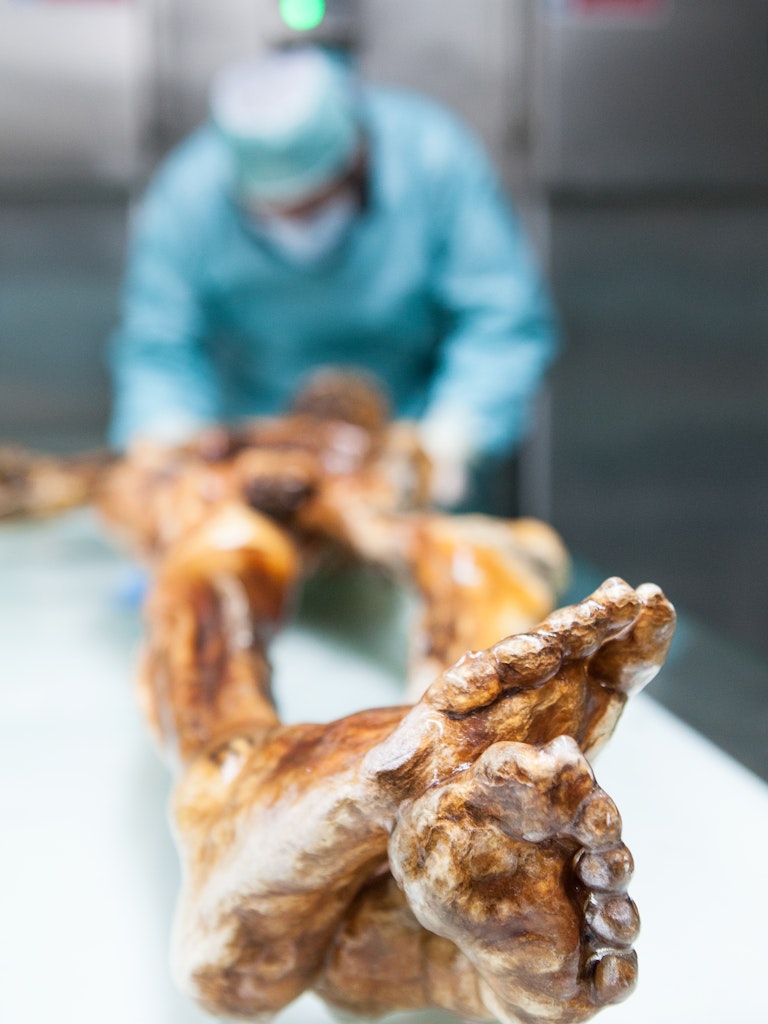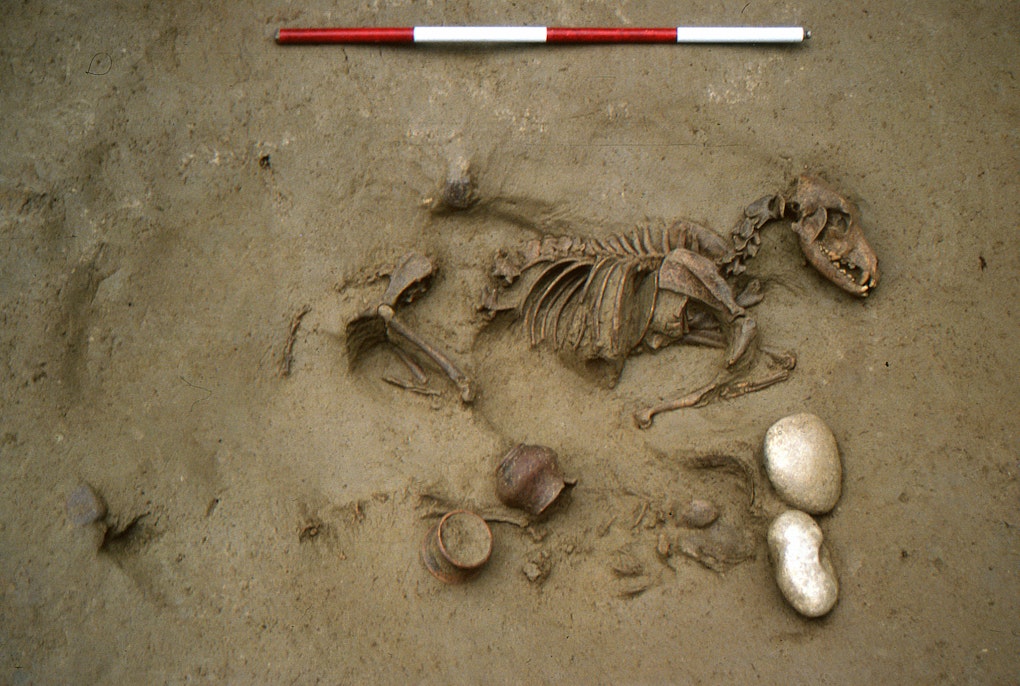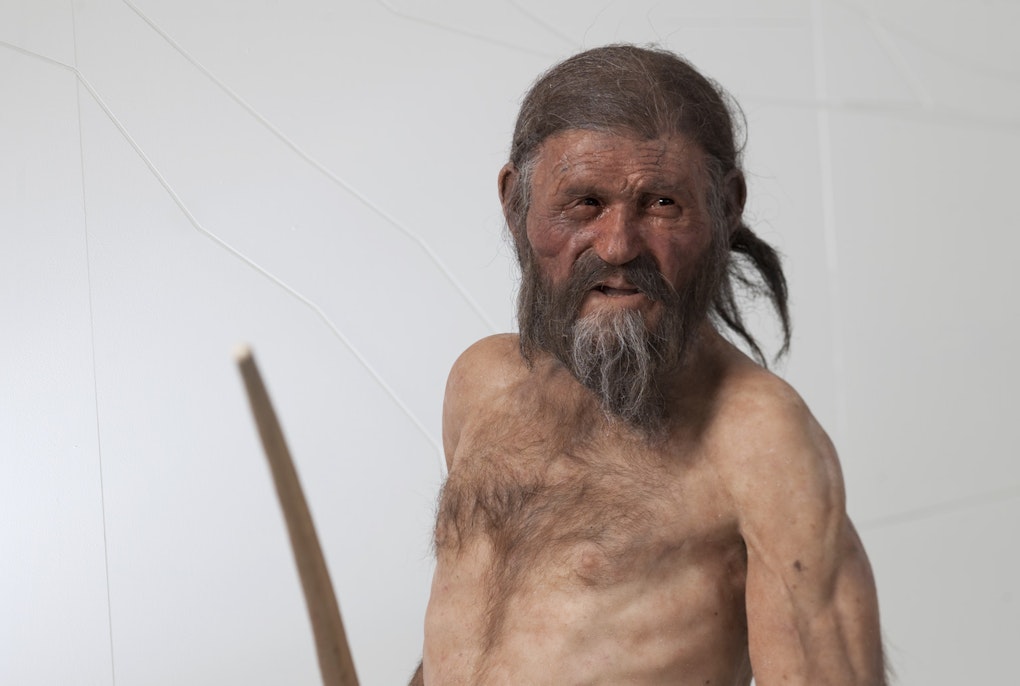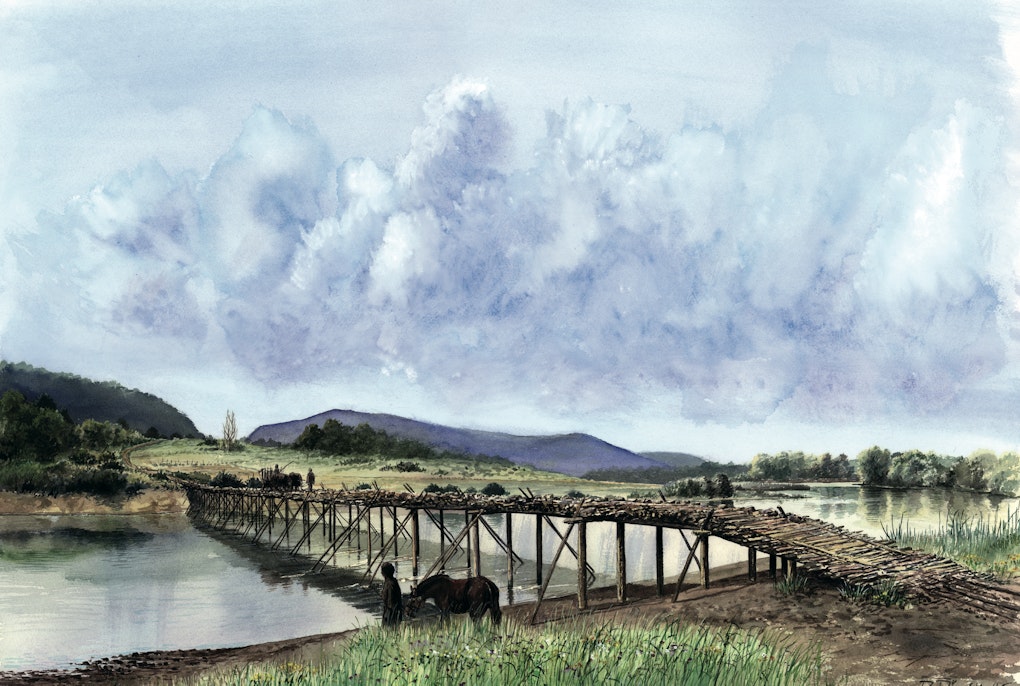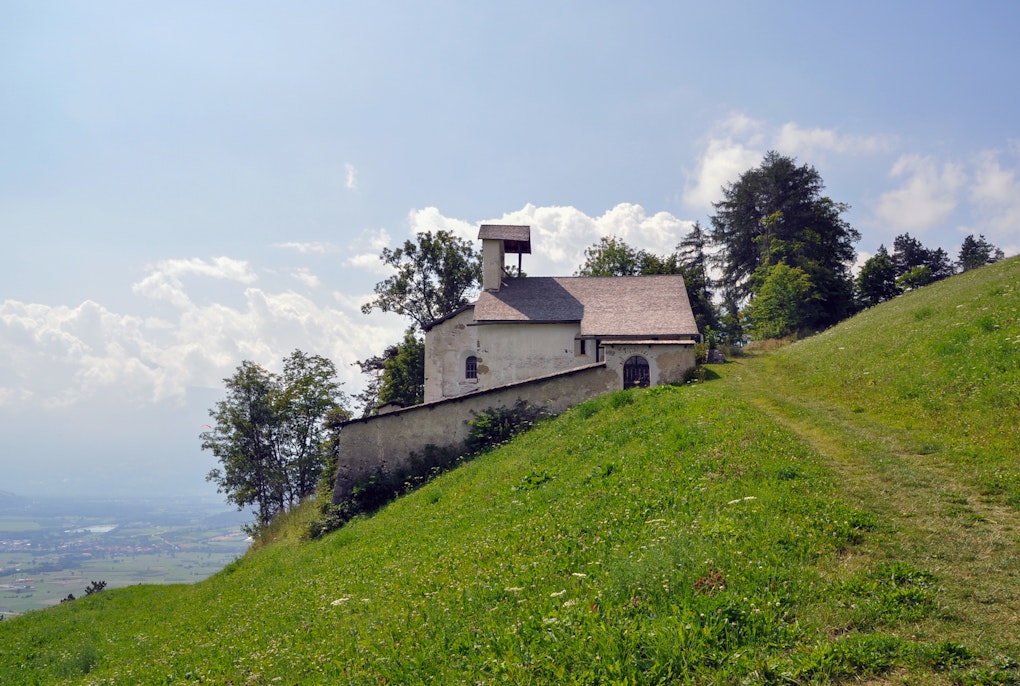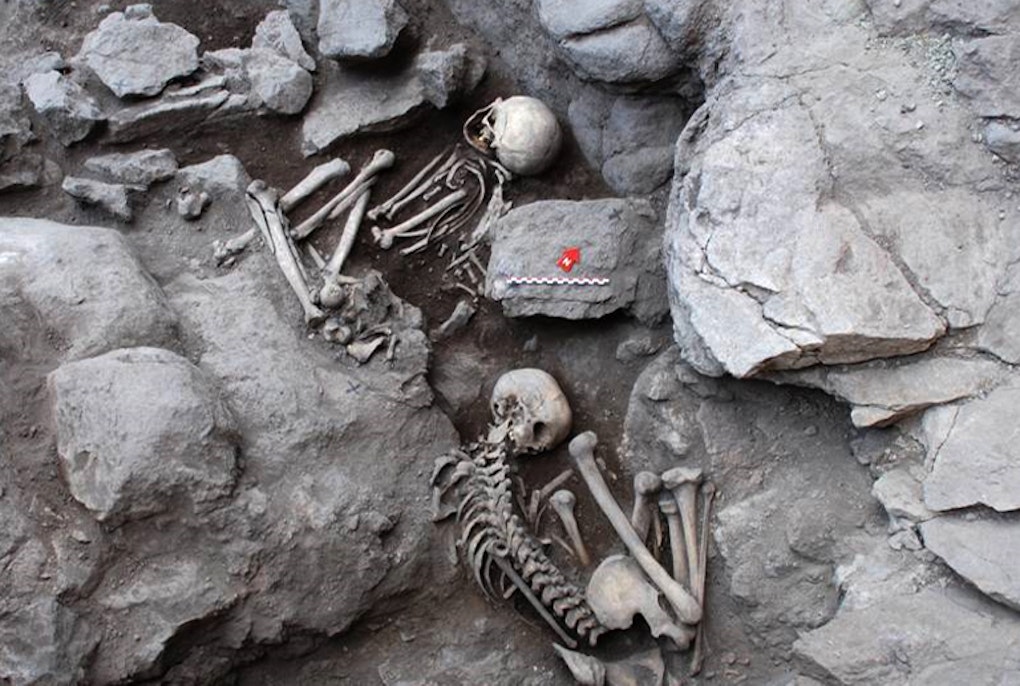Iceman
Photo: Marion Lafogler | South Tyrol Museum of Archaeology/Eurac Research
A study that was published today in Cell Host & Microbe explored for the first time the variation and evolution of Prevotella copri, a common human gut microbe.
A research study conducted jointly by the University of Trento and Eurac Research in Bolzano/Bozen revealed that the evolution of dietary and hygienic habits in Western countries is associated with a decrease in the bacteria that help in digestion. These very bacteria were also found in the Iceman, who lived 5300 years ago, and are still present in non-Westernized populations in various parts of the world. The depletion of the microbiome may be associated with the increased prevalence, in Western countries, of complex conditions like allergies, autoimmune and gastrointestinal diseases, obesity.
The intestinal microbiome is a delicate ecosystem made up of billions and billions of microorganisms, bacteria in particular, that support our immune system, protect us from viruses and pathogens, and help us absorb nutrients and produce energy. The industrialization process in Western countries had a huge impact on its content. This was confirmed by a study on the bacteria found in the intestine of Ötzi, the Iceman who, in 1991, emerged from the ice of the Ötztal Alps, where Italy borders with Austria. Scientists of Eurac Research examined samples of the mummy's bacteria, confirming the findings of the researchers of the University of Trento who had analyzed the genome of intestinal microorganisms of over 6500 individuals from all continents. Previous studies by the University of Trento had demonstrated that there is a connection between the microbiome's bacterial content and the increase, in Western countries, of obesity, autoimmune and gastrointestinal diseases, allergies and other complex conditions. In the study that appeared today in Cell Host & Microbe, researchers from Cibio of the University of Trento and Eurac in Bolzano/Bozen demonstrated that the differences between Western and non-Western or prehistoric microbiome lie in the decrease of some types of bacteria that process complex and vegetal fibers in the intestine. That may have been caused by the Westernization process. Changes in diet, which is now higher in fat and low in fibers, a sedentary lifestyle in an urban setting, the development of new hygiene habits and the widespread use of antibiotics and other medical products have, with no doubt, made our life safer, but impacted the delicate balance of our microbiome.
The study – The scientists of Eurac Research in Bolzano/Bozen sequenced the Iceman's DNA and were able to identify his set of bacteria, while the researchers of the University of Trento compared it with the microbiome of contemporary non-Westernized populations (from Tanzania and Ghana in particular), which are not used to processed food and have non-Westernized hygiene practices and lifestyle. Their findings were surprising. The study focused, in particular, on Prevotella copri, a microbe that, when is found in our intestine, is usually the most represented. P. copri is present in 30% of Western individuals. "First of all, we found out that P. copri it is not a monotypic species but is composed of four distinct but similar clades", explained Nicola Segata, coordinator of the study with Adrian Tett of Cibio of the University of Trento. "We then noticed that at least three of these four clades are almost always present in non-Westernized populations, but are much less prevalent in Westernized individuals. And when it is so, there usually is only one of the four clades. We postulated that the complex process of Westernization had a considerable impact on the gradual disappearance of this bacterium. Our hypothesis was confirmed by the analysis of ancient samples of DNA that were made available by Frank Maixner of the Institute for Mummy Studies at Eurac Research. The Iceman's guts contained three of the four clades of P. copri. And the four clades were also co-present in fossilized stool samples from Mexico that are more than one thousand years old. We still do not know what are the biomedical consequences of these changes of the microbiome which has evolved considerably in recent decades while the human body it colonizes has remained genetically practically unchanged for centuries".
"Through these 'ancient' samples – continued Tett – we were able to study the evolution of these clades and now we know that they genetically delineated with the human species and before the initial human migrations out of the African continent". The study is the result of close collaboration with the research group of Albert Zink and Frank Maixner at Eurac Research in Bolzano/Bozen. Their team was responsible for the collection and pre-analysis of the Iceman's DNA samples. "The relation between the evolution of the human species and the diversity of intestinal microorganisms, as a field of research, is still rather unexplored, but can yield important results in the future through the analysis of ancient DNA. For this reason, finding more advanced and less invasive techniques to obtain and analyze DNA from human remains is one of the major areas of research at Eurac" concluded the microbiologist of Eurac Research Frank Maixner.
 Publication
Publication“The Prevotella copri complex comprises four distinct clades underrepresented in Westernized populations”
The full article is available in Open Access on the website of Cell Host & Microbe and at the following address
https://www.cell.com/cell-host-microbe/fulltext/S1931-3128(19)30427-5
(DOI 10.1016/j.chom.2019.08.018)
